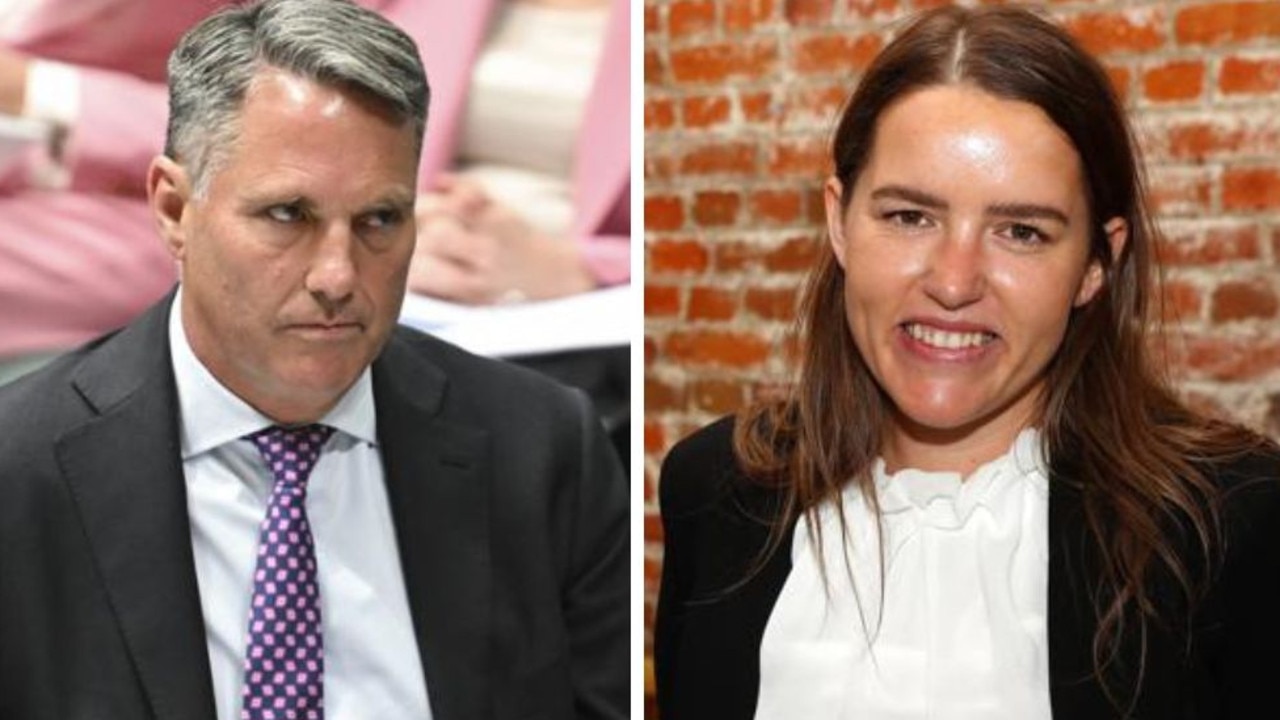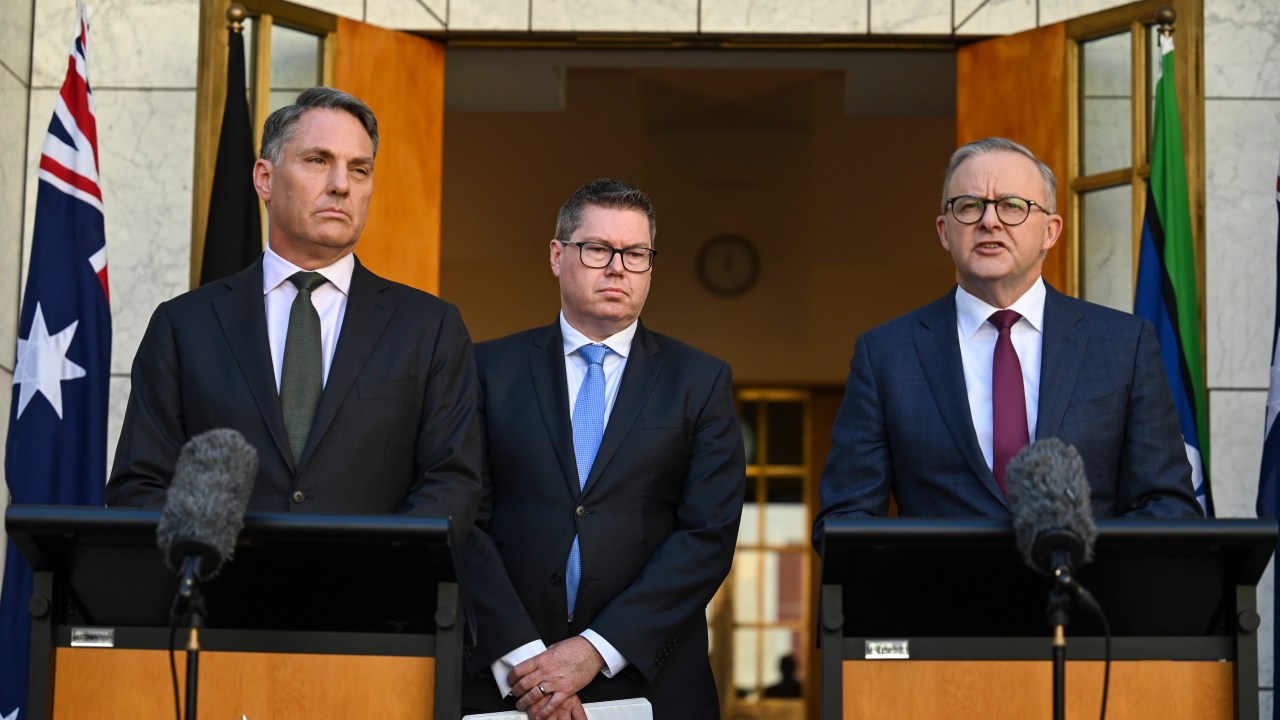Richard Marles, Australia’s Deputy Prime Minister, stands as a prominent figure in contemporary Australian politics. His career trajectory within the Australian Labor Party, marked by significant appointments and legislative involvement, offers a compelling case study in political leadership. This exploration delves into his key policy positions, his public image, and his pivotal role in shaping both domestic and international affairs for Australia.
From his early career within the Labor Party to his current position as Deputy Prime Minister, Marles’ journey has been characterized by consistent engagement with significant national and international issues. This examination will analyze his stances on crucial policy areas, including Australia’s relationship with China, climate change mitigation, national security, and economic management, offering insights into his political philosophy and approach to governance.
Richard Marles’ Political Career
Richard Marles’ career within the Australian Labor Party exemplifies a steady ascent through various roles, culminating in his current position as Deputy Prime Minister and Minister for Defence. His journey demonstrates a commitment to policy development and strategic leadership within the party and the broader Australian political landscape. He has consistently sought to build consensus and contribute to significant legislative achievements.
Richard Marles’ Career Progression within the Australian Labor Party
Richard Marles’ political career began with his election to the Australian House of Representatives in 2007, representing the electorate of Corangamite in Victoria. His early years in Parliament saw him focus on building his reputation as a thoughtful and effective member. He gradually took on increasing responsibilities, demonstrating a consistent commitment to his constituents and the Labor Party’s platform.
Richard Marles’s career in Australian politics has been marked by significant contributions to the nation’s security and defense policies. For a deeper dive into his political journey and current roles, you can explore this informative resource on richard marles. Understanding his background is crucial to comprehending his influence on contemporary Australian political discourse.
His progression through various parliamentary roles and ministerial appointments showcases his dedication and ability to navigate the complexities of Australian politics.
Richard Marles’ recent activities have garnered significant attention in Australian politics. For more in-depth information on his career and current roles, you can visit this informative resource dedicated to his public life: richard marles. Understanding his background is crucial for analyzing his influence on current policy debates, and the linked site provides a helpful starting point for further research into Richard Marles’ contributions.
Key Political Appointments and Roles
A timeline of Richard Marles’ key political appointments and roles provides a clear picture of his career trajectory. These appointments reflect his growing influence within the Labor Party and the government.
| Date | Role | Achievement | Impact |
|---|---|---|---|
| 2007 | Elected to the House of Representatives | Successfully contested the seat of Corangamite | Secured a seat for the Labor Party and began his parliamentary career. |
| 2013-2016 | Shadow Minister for Immigration and Border Protection | Developed and articulated alternative immigration policies | Contributed to the Labor Party’s policy platform on immigration and border security. |
| 2016-2019 | Shadow Minister for Defence | Provided alternative perspectives on defence policy | Shaped the Labor Party’s approach to defence issues and prepared for potential future leadership roles. |
| 2019-2022 | Shadow Minister for Defence; Deputy Leader of the Australian Labor Party | Played a key role in Labor’s election campaign | Contributed significantly to Labor’s successful 2022 election campaign and solidified his leadership position. |
| 2022-Present | Deputy Prime Minister; Minister for Defence | Oversees national security and defence policy | Leads the nation’s defence strategies and plays a crucial role in the government’s executive. |
Significant Legislation
While pinpointing specific legislation solely attributable to Richard Marles is difficult due to the collaborative nature of lawmaking, his involvement in key areas like defence and national security is significant. His contributions have likely influenced the shaping and passage of various bills related to these portfolios. His role in formulating and advocating for Labor’s policy positions on these issues has been crucial.
Access to parliamentary records and Hansard would provide more detailed information on specific legislative contributions.
Marles’ Role in Current Australian Politics
Richard Marles, as Deputy Prime Minister of Australia, plays a significant role in shaping the nation’s political landscape. His responsibilities extend beyond a specific portfolio, encompassing a broad range of duties crucial to the effective functioning of the government.Richard Marles’ current responsibilities as Deputy Prime Minister are multifaceted. He acts as a key advisor to the Prime Minister, assisting in the formulation and implementation of government policy across various sectors.
His influence extends to cabinet discussions, where he participates in decision-making processes on critical national issues. Furthermore, he often represents the Prime Minister at significant events and meetings, both domestically and internationally, acting as a spokesperson for the government on a range of matters. He also plays a vital role in managing the relationship between the government and the Parliament, ensuring the smooth passage of legislation.
Marles’ Involvement in Recent Government Decisions
Marles has been actively involved in several key government decisions recently. For example, he played a significant role in the government’s response to the ongoing challenges posed by the war in Ukraine, contributing to the development of Australia’s foreign policy strategy in this critical area. His contributions included consultations with international partners and the coordination of Australia’s aid and support to Ukraine.
In addition, he has been instrumental in shaping the government’s approach to the ongoing economic challenges facing Australia, advocating for policies aimed at promoting sustainable economic growth and job creation. Specific details of his involvement are often publicly disclosed through press releases and parliamentary proceedings.
Interactions with Other Key Political Figures
Marles regularly interacts with other prominent political figures, both within Australia and internationally. Domestically, his interactions with the Prime Minister are crucial for coordinating government policy and ensuring effective governance. He also maintains close working relationships with other cabinet ministers, fostering collaboration and consensus-building on major policy initiatives. Internationally, he engages with counterparts in other countries, fostering diplomatic relations and advancing Australia’s interests on the global stage.
For instance, his meetings with representatives from various countries, including the United States and regional partners in Southeast Asia, reflect his commitment to international cooperation and engagement.
Marles’ Influence on the Current Government’s Agenda, Richard marles
Marles exerts considerable influence on the current government’s agenda. His strong advocacy for specific policies, coupled with his close relationship with the Prime Minister, allows him to shape the government’s priorities and direction. His strategic thinking and experience contribute significantly to the formulation and implementation of government policies, particularly in areas such as foreign affairs, defence, and economic management.
His position as Deputy Prime Minister gives him a prominent platform to articulate the government’s vision and policies, shaping public opinion and influencing the national conversation.
Richard Marles and International Relations
Richard Marles’s influence on Australia’s foreign policy is significant, marked by a pragmatic approach balancing traditional alliances with a focus on navigating the complexities of the Indo-Pacific region. His tenure has seen a renewed emphasis on strengthening regional partnerships and engaging with key players in the evolving geopolitical landscape.
His role in shaping Australia’s foreign policy is multifaceted, encompassing strategic decision-making, diplomatic engagement, and the articulation of Australia’s interests on the global stage. This involves working closely with various government departments and agencies to coordinate foreign policy initiatives and ensure consistent messaging.
Marles’s Interactions with International Leaders
Richard Marles has cultivated relationships with numerous international leaders, reflecting Australia’s diverse foreign policy priorities. These interactions are crucial for fostering mutual understanding, addressing shared challenges, and advancing Australia’s interests. High-level meetings and diplomatic exchanges allow for the direct discussion of bilateral issues and the negotiation of agreements. For example, his meetings with his US counterpart have focused on strengthening the Australia-US alliance, particularly in the context of the AUKUS partnership.
Similarly, his engagements with leaders in the Indo-Pacific region aim to bolster regional stability and cooperation.
Marles’s Contributions to Australia’s Alliances and Partnerships
A key aspect of Marles’s foreign policy approach is the strengthening of Australia’s existing alliances and the forging of new partnerships. This includes reinforcing the vital relationship with the United States, particularly through the AUKUS security pact, which involves collaboration on advanced military capabilities. Beyond the US, Marles has actively pursued closer ties with countries in Southeast Asia, India, and Japan, recognizing their importance in maintaining a stable and prosperous Indo-Pacific.
This is evident in increased diplomatic exchanges, joint military exercises, and enhanced economic cooperation.
Comparison with Predecessors
Comparing Marles’s approach to foreign policy with that of his predecessors requires a nuanced understanding of the evolving geopolitical context. While maintaining a commitment to traditional alliances, Marles’s approach appears to place a greater emphasis on navigating the complexities of the Indo-Pacific region, specifically addressing the rise of China and its impact on regional stability. This differs from previous administrations, who may have had a different focus in terms of regional priorities and engagement strategies.
The specific differences are subtle and depend on the individual policies and priorities of each predecessor, requiring a more detailed comparative analysis of specific policy decisions and statements.
Richard Marles’ influence on Australian politics is undeniable. His career progression, policy stances, and public perception all contribute to a complex and multifaceted portrait of a significant political figure. This analysis has highlighted his key achievements, challenges, and the ongoing impact of his leadership on Australia’s domestic and foreign policy landscape. His role as Deputy Prime Minister positions him at the heart of current political discourse, ensuring his continued relevance in shaping Australia’s future.
FAQ Overview
What is Richard Marles’ educational background?
Richard Marles holds a Bachelor of Arts and a Bachelor of Laws from Monash University.
What are some criticisms leveled against Richard Marles?
Criticisms have focused on aspects of his policy positions, particularly regarding China and national security, with some commentators questioning his approach.
Has Richard Marles held any ministerial positions prior to becoming Deputy Prime Minister?
Yes, he has held several ministerial portfolios, including Defence Minister.
What is Richard Marles’ stance on free trade agreements?
Further research is needed to definitively state his position on this specific issue. His public statements and voting record should be consulted for a comprehensive understanding.



